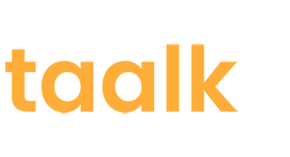The Uncensored Reach: How Armanet Built the Fastest-Growing Censorship-Resistant Ad Platform for Conservative Audiences
For years, the digital advertising landscape has been dominated by a handful of “major platforms” whose policies often reflect an opaque and politically charged gatekeeping process. This creates a critical bottleneck for brands that serve large, legal industries, and it chokes the monetization potential for a vast network of independent media outlets.
Enter Armanet, a company that didn’t just compete with Big Tech—it built a parallel ecosystem where scalable reach and measurable performance aren’t dictated by political bias. Armanet is a censorship-resistant ad platform that started by solving the hardest problem in digital advertising: allowing the firearms and outdoor industry to run ads like any other legal business. This strategic “beachhead” has since expanded, making Armanet the largest and fastest-growing ad network operating in media censored by the incumbent giants.
The Censorship Conundrum: Why Brands and Publishers Needed an Alternative
The foundation of Armanet’s success lies in addressing a profound market failure. When major ad platforms unilaterally decide which legal industries and political viewpoints are acceptable, they create a massive disconnect between advertisers, audiences, and publishers.
Solving the Hardest Problem in Digital Advertising
The genesis of Armanet was its initial focus on the firearms and outdoor industry. This industry, despite being entirely legal and serving millions of consumers, faced near-total lockout from platforms like Google and Meta. This challenge was immense—it required building a full-feature ad platform with the same programmatic display, CTV, video, and performance-tracking capabilities as the majors, but with a fundamentally different, politically neutral infrastructure.
By delivering scalable reach and measurable results for brands like Sig Sauer, Scheels, and Guns.com, Armanet proved its core thesis: that vast, engaged conservative and independent audiences were being ignored, and an effective platform could monetize this demand.
The Dual Disruption: Unlocking Value for Both Sides of the Market
Armanet’s model is a powerful example of founder mindset and strategic market entry. Instead of attempting a direct, frontal assault on Big Tech’s core business, the company focused on serving the two disenfranchised segments of the market:
- Advertisers: Brands gain access to millions of engaged, high-intent consumers that are effectively censored or inaccessible on other platforms. This translates directly to high-impact campaigns and superior ROI, as the inventory is less crowded and the audience is precisely targeted.
- Publishers: Independent and conservative media outlets, long denied fair access to premium ad demand, finally find a monetization partner who “actually wants them to succeed.” Armanet unlocks fair CPMs and premium demand for these censored publishers, offering them a viable, sustainable business model outside the dominant ecosystems.
This dual focus created a self-reinforcing flywheel effect: as more premium brands joined for the audience reach, more censored publishers signed up for the better monetization, making the network even more valuable.
Actionable Lessons for Founders Challenging Monopolies
Armanet’s success in challenging a tech monopoly offers crucial, actionable lessons for any founder in a highly competitive or regulated space:
- Find the Hardest Niche (The Beachhead): Don’t try to solve a general problem first. Solve the most difficult, most underserved problem in your industry (e.g., firearms advertising). Proving you can conquer the toughest challenge immediately establishes credibility and scalability for less difficult adjacent markets.
- Match Features, Beat Politics: If you are challenging an incumbent, you must match their feature set (programmatic, CTV, video) while offering a fundamentally superior value proposition (in this case, censorship-resistance and access to a specific, underserved audience).
- Create a Win-Win Ecosystem: Ensure your solution provides disproportionate value to both sides of your marketplace—premium demand for publishers, and scalable reach for advertisers. This accelerates network effects and makes your platform indispensable.
- Leverage Exclusion as a Differentiator: Turn your competitors’ biases and gatekeeping policies into your unique selling proposition. Armanet transformed political censorship from a barrier into a profitable, strategic market advantage.
The Path to Unrestricted Digital Commerce
Today, Armanet’s platform is a testament to the fact that innovation thrives in the gaps left by large, slow-moving organizations. By providing sophisticated, high-performance tools without the political baggage of its competitors, Armanet is not just facilitating advertising; it’s championing unrestricted digital commerce and fair media monetization across a crucial segment of American society. The company proves that strategic founder mindset and technical excellence can build a powerhouse even when challenging the world’s largest tech giants.
Are you a startup founder or innovator with a story to tell? We want to hear from you! Submit Your Startup to be featured on Taalk.com.








